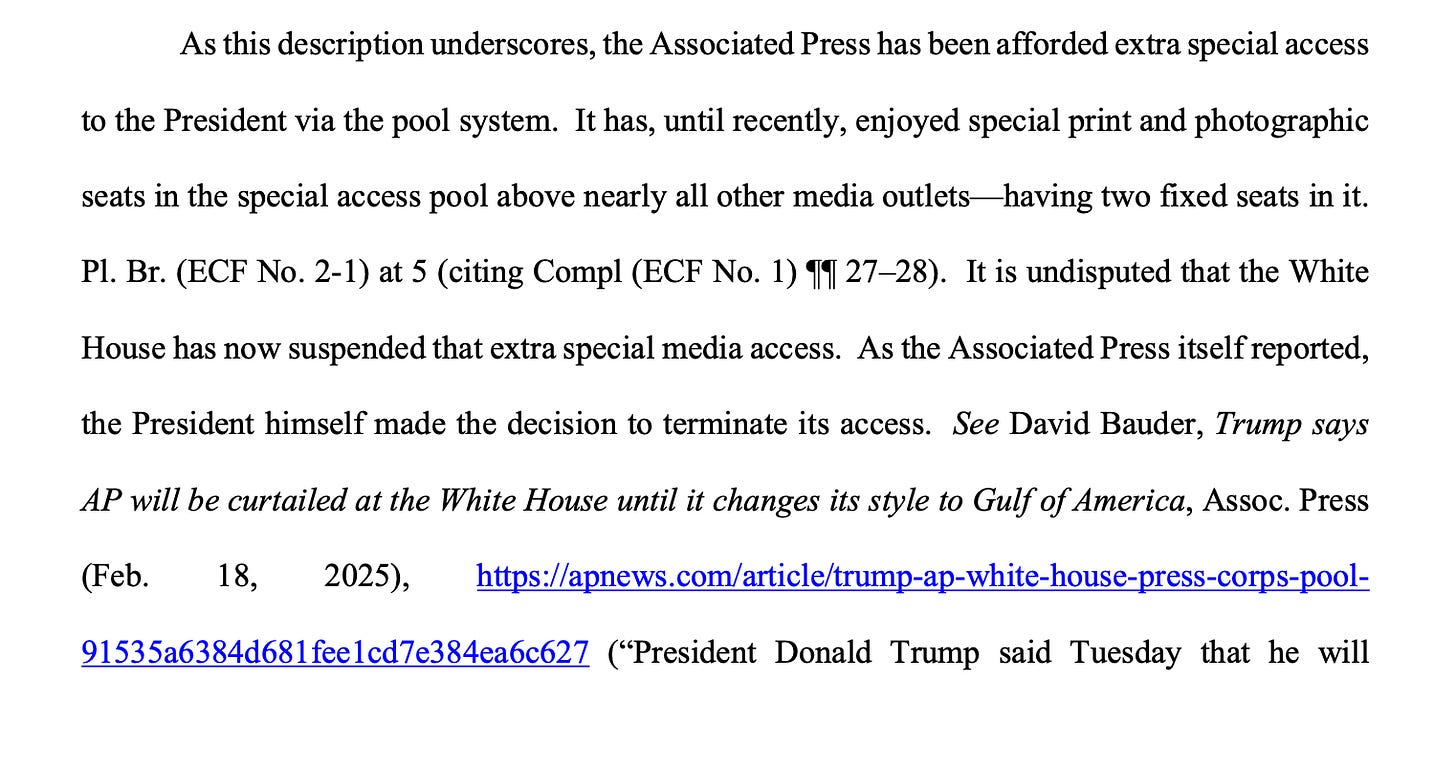We now have confirmation: Donald Trump made the decision to bar the Associated Press from entering the Oval Office or Air Force Once. In these challenging times, it is more important than ever that journalists remain untethered from outside agendas, and it is through the support of conscientious individuals that I can continue to do the work of informing the public and holding power to account. I hope you’ll consider joining me:
Today, in a new filing submitted by the Department of Justice in the lawsuit filed by the Associated Press against the White House, Justice Department attorneys note that “the President himself made the decision to terminate” the access of the Associated Press.
For background, the AP sued the Trump administration, asserting that restrictions on its journalists' access to presidential events in the Oval Office and on Air Force One violate the First Amendment. The conflict arose after President Donald Trump signed an executive order renaming the Gulf of Mexico to the "Gulf of America." The AP, adhering to its editorial standards and considering its global audience, chose to continue using the traditional name, "Gulf of Mexico," in its reporting. In response, the administration (and we are now learning Donald Trump himself) barred AP journalists from key events, including those in the Oval Office and aboard Air Force One. The AP contends that this punitive action infringes upon press freedom and seeks legal redress to restore full access for its reporters. Today’s filing highlights the White House’s issue with the term “Gulf of Mexico.”
Judge Trevor McFadden, a Trump appointee, has been assigned to the case that the Associated Press filed against Trump White House officials. The hearing is set to take place this afternoon at the DC federal court.
The First Amendment guarantees a free and independent press, essential for holding government accountable. When an administration attempts to dictate the language used by journalists or penalizes them for editorial decisions, it undermines the very foundation of democratic discourse. The AP's refusal to adopt the "Gulf of America" terminology reflects its commitment to editorial integrity and factual reporting. The subsequent retaliatory measures by the administration not only hinder the AP's ability to inform the public but also set a concerning precedent for press-government relations.
As an independent journalist, I stand firmly with the Associated Press in its legal battle against the Trump administration’s actions to restrict access to presidential events. The AP's lawsuit underscores a fundamental issue that affects all journalists and citizens alike: the right to a free press. By limiting access to key events, the administration is not only obstructing transparency but also undermining the essential role the media plays in holding those in power accountable. The First Amendment guarantees that freedom of the press is vital to a functioning democracy, and any action that threatens this right should be contested.
The AP's courageous stance is not just about access to events, but about preserving the core principles of free expression and the public's right to know. In standing with the AP, I affirm that the press must remain independent, free from interference, and capable of doing its job without fear of retaliation or censorship. Join me:






Thank you for your insight and great reporting ⭐️
If only this shocked me! 😩